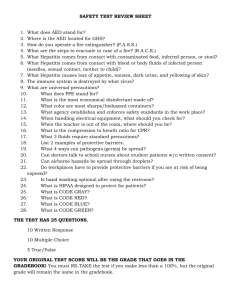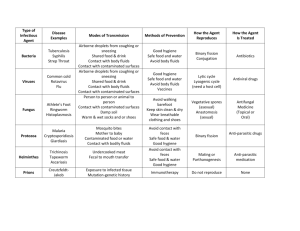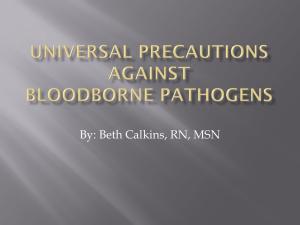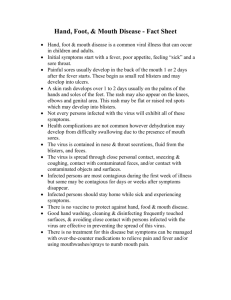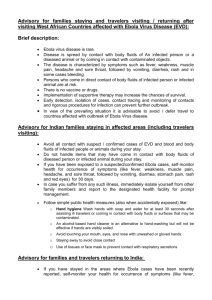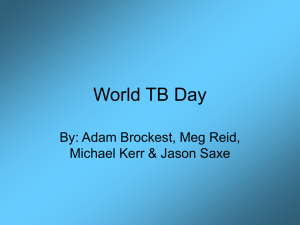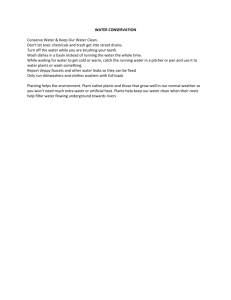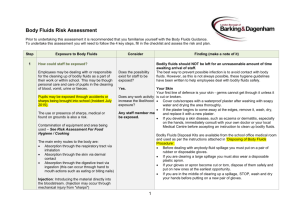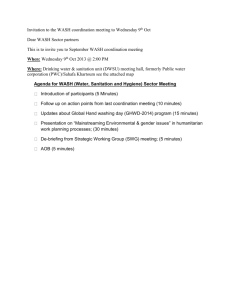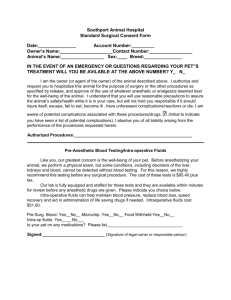Spread of Disease - Washtenaw County
advertisement
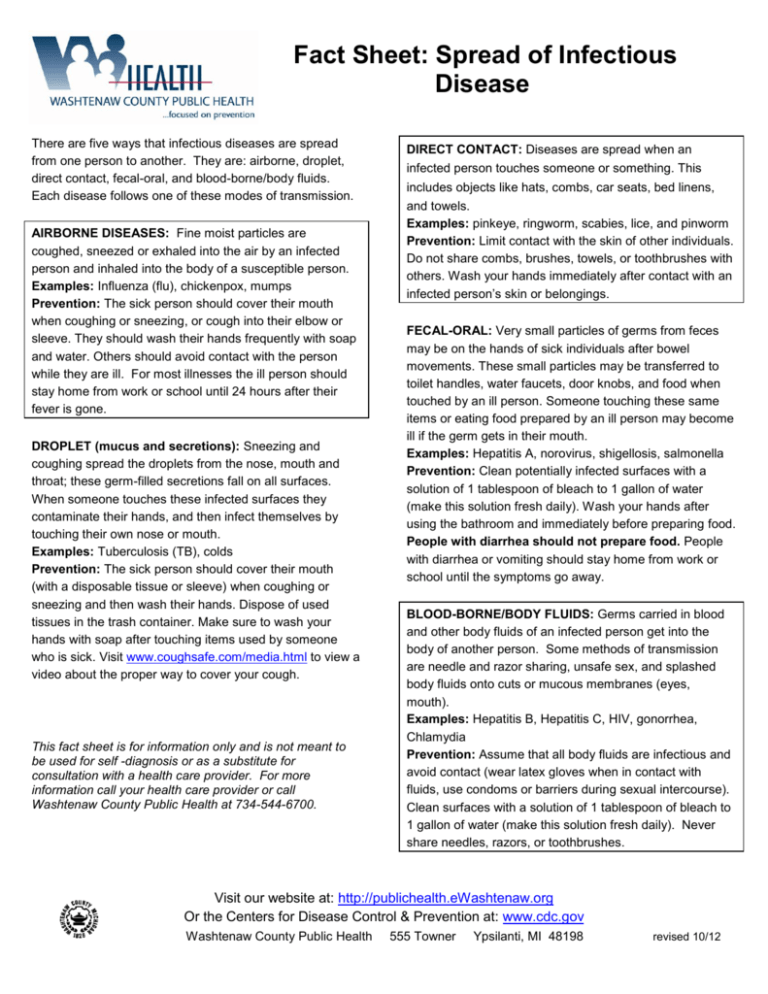
Fact Sheet: Spread of Infectious Disease There are five ways that infectious diseases are spread from one person to another. They are: airborne, droplet, direct contact, fecal-oral, and blood-borne/body fluids. Each disease follows one of these modes of transmission. AIRBORNE DISEASES: Fine moist particles are coughed, sneezed or exhaled into the air by an infected person and inhaled into the body of a susceptible person. Examples: Influenza (flu), chickenpox, mumps Prevention: The sick person should cover their mouth when coughing or sneezing, or cough into their elbow or sleeve. They should wash their hands frequently with soap and water. Others should avoid contact with the person while they are ill. For most illnesses the ill person should stay home from work or school until 24 hours after their fever is gone. DROPLET (mucus and secretions): Sneezing and coughing spread the droplets from the nose, mouth and throat; these germ-filled secretions fall on all surfaces. When someone touches these infected surfaces they contaminate their hands, and then infect themselves by touching their own nose or mouth. Examples: Tuberculosis (TB), colds Prevention: The sick person should cover their mouth (with a disposable tissue or sleeve) when coughing or sneezing and then wash their hands. Dispose of used tissues in the trash container. Make sure to wash your hands with soap after touching items used by someone who is sick. Visit www.coughsafe.com/media.html to view a video about the proper way to cover your cough. This fact sheet is for information only and is not meant to be used for self -diagnosis or as a substitute for consultation with a health care provider. For more information call your health care provider or call Washtenaw County Public Health at 734-544-6700. DIRECT CONTACT: Diseases are spread when an infected person touches someone or something. This includes objects like hats, combs, car seats, bed linens, and towels. Examples: pinkeye, ringworm, scabies, lice, and pinworm Prevention: Limit contact with the skin of other individuals. Do not share combs, brushes, towels, or toothbrushes with others. Wash your hands immediately after contact with an infected person’s skin or belongings. FECAL-ORAL: Very small particles of germs from feces may be on the hands of sick individuals after bowel movements. These small particles may be transferred to toilet handles, water faucets, door knobs, and food when touched by an ill person. Someone touching these same items or eating food prepared by an ill person may become ill if the germ gets in their mouth. Examples: Hepatitis A, norovirus, shigellosis, salmonella Prevention: Clean potentially infected surfaces with a solution of 1 tablespoon of bleach to 1 gallon of water (make this solution fresh daily). Wash your hands after using the bathroom and immediately before preparing food. People with diarrhea should not prepare food. People with diarrhea or vomiting should stay home from work or school until the symptoms go away. BLOOD-BORNE/BODY FLUIDS: Germs carried in blood and other body fluids of an infected person get into the body of another person. Some methods of transmission are needle and razor sharing, unsafe sex, and splashed body fluids onto cuts or mucous membranes (eyes, mouth). Examples: Hepatitis B, Hepatitis C, HIV, gonorrhea, Chlamydia Prevention: Assume that all body fluids are infectious and avoid contact (wear latex gloves when in contact with fluids, use condoms or barriers during sexual intercourse). Clean surfaces with a solution of 1 tablespoon of bleach to 1 gallon of water (make this solution fresh daily). Never share needles, razors, or toothbrushes. Visit our website at: http://publichealth.eWashtenaw.org Or the Centers for Disease Control & Prevention at: www.cdc.gov Washtenaw County Public Health 555 Towner Ypsilanti, MI 48198 revised 10/12
